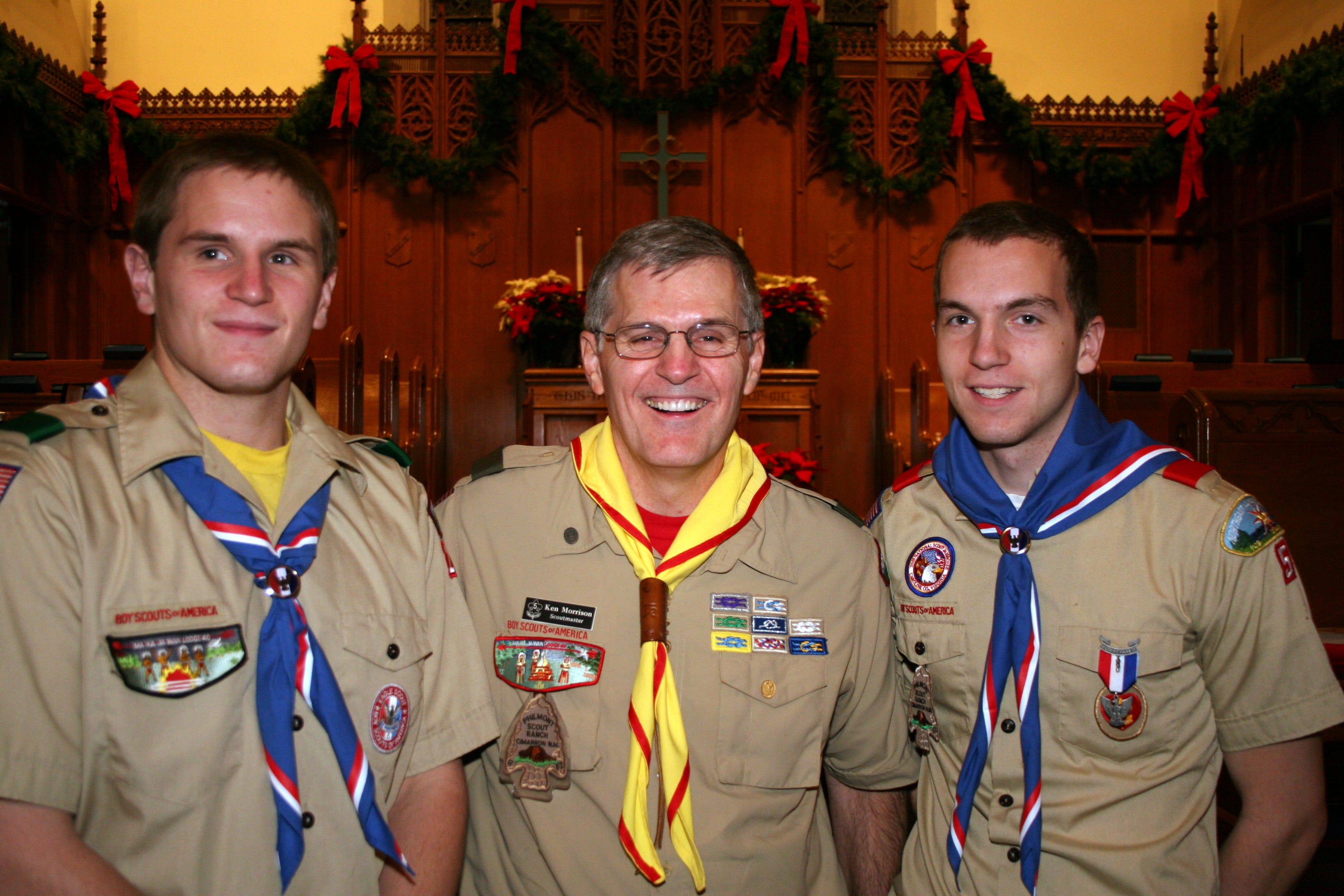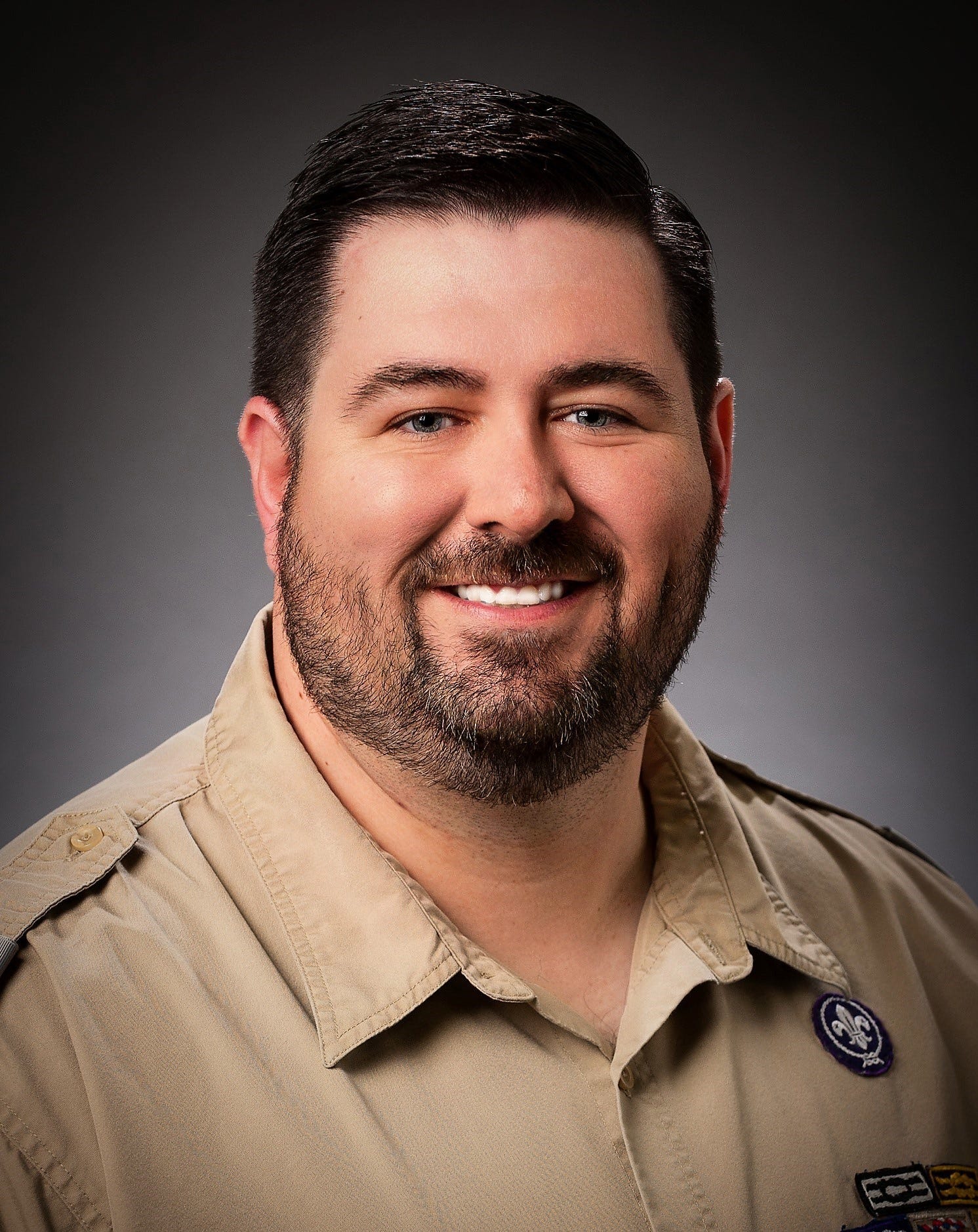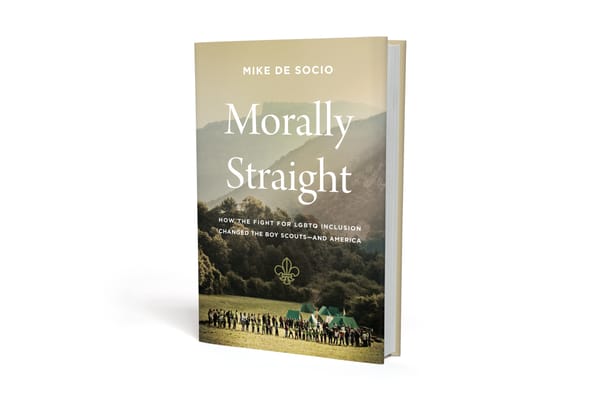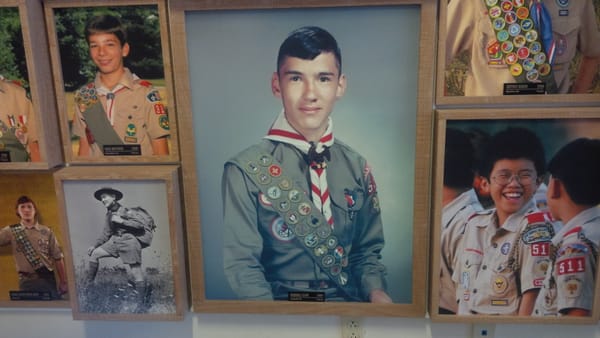Pride Edition: Making a statement
“I’ve always been disappointed by the lack of affirmative apologies, affirmative acknowledgements of harm ... I think you have to call it what it is."
Happy Pride, my dear readers! 🌈 This newsletter is about the LGBTQ+ community every month of the year, but this June I’m going to bring you stories about how Pride is playing out in Scouting. So enjoy this installment of the Pride Edition, and come back next week for more.

Ken Morrison has seen his fair share of corporate statements over the years.
In fact, most of us are now pretty familiar with the genre. Crisis after crisis in 2020 compelled executives to make their thoughts known on everything from race, to climate change and gay rights.
The playbook is pretty simple: Pay lip service to a trendy social justice cause, make a vague commitment to do better, and move right along.
So when Morrison, president of the Northeast Illinois Council of the Boy Scouts of America, sat down at his keyboard to write a statement on Pride month this year, he wanted to do something different. He wanted to recognize and apologize for the harm done by the BSA’s decades of exclusionary policies toward the LGBTQ+ community.
“I’ve always been disappointed by the lack of affirmative apologies, affirmative acknowledgements of harm,” Morrison said of typical corporate statements. “I think you have to call it what it is. I believe in being direct about it.”
The Northeast Illinois Council’s statement in June did just that:
“We recognize that these policies remained in place far too long and that they were exclusionary and hurtful. We also recognize that LGBTQIA+ and questioning Scouts and Scouters suffered from biased, harmful, and insensitive comments and actions of others involved in the program. We apologize for the harm caused by these attitudes and behaviors,” the statement read.
“I think that part of the statement was extremely powerful,” said Nick Roberts, the council’s scout executive and CEO. A member of his staff, who belongs to the LGBTQ+ community, said it was the first time they had ever heard an apology from Scouting for the harm done by the anti-gay membership standards.

The council’s public message was signed by Morrison and Roberts, along with Reed Snyder, the council commissioner; and Paul Bateman, the council’s newly-appointed vice president of diversity, equity and inclusion. It was sent in the council’s newsletter, under the header of a council logo infused with the colors of the Pride flag.
Morrison said the council’s decision to make a public statement celebrating Pride this year grew out of the momentum from last summer’s protests around racial justice. Following the murder of George Floyd at the hands of police, the council’s Key 3 put out a message condemning Floyd’s killing, acknowledging that the council had become “too comfortable with the status quo,” and committing to more active anti-racism work.
“Scouting teaches us that everyone matters equally. We firmly believe that unless Black Lives Matter, this ideal has not yet been realized,” the statement read.
The council has since created a diversity, equity and inclusion committee and hired Bateman to lead it. They’ve also contracted with a local youth services agency to help them create a culture of inclusion, especially for trans and gender-nonconforming youth.
“We just knew that we needed a subject matter expert and a partner in the community that could help us navigate through these issues,” Roberts said.
In a council that had long called for the end of anti-gay membership policies, Roberts said the response to these efforts, including the Pride statement, has been “overwhelmingly positive.”
But of course, Morrison heard from some Scouters in the council who were unhappy about it. “[One Scouter] told me that he was conservative politically, I told him that I was in a different place than that politically, but that Scouting had made the decision to be inclusive and that this was based on that decision that Scouting had made,” Morrison said.
“I believe in talking to people, I don’t want to hide in an ivory tower, and I’m happy to talk to members of the council, with parents, with volunteer leaders, with staff.”


